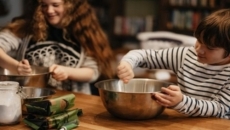Children are more prone to accidents and diseases. Therefore, symptoms of illness or overexertion, such as fever, swollen and aching joints, rashes, and exhaustion, may be misdiagnosed. Parents may also assume that swollen or painful joints in kids are the consequence of sports-related injuries or typical growing pains. Do you realise that juvenile idiopathic arthritis (JIA) may be the cause of these uncomplicated symptoms? The most well-known form of arthritis in children is juvenile idiopathic arthritis. It is also among the most prevalent chronic illnesses that afflict children under the age of 16 and affects toddlers.
Studies suggest that in Indian children, the prevalence of JIA is approximately 48/100,000! It's noteworthy to note that girls tend to have rheumatoid arthritis at an earlier age than boys do.
It is important to know when it is urgent to obtain advice about joint pain. If a child has the following joint pain issues, they must be treated as "warning signs" and urgent consultation and proper assessment is required.
Joint swelling: If the child reports of pain and there is joint swelling/ warmth across the joints.
Morning stiffness: It is difficult for a child to move in the early morning hours when he/she wakes up with joint pains or limps while walking, but gets better as the day passes.
Fever with joint pain: Fever and joint pain may be caused by a viral infection (dengue/chikungunya). However, it may sometime be due a sinister underlying disease (blood cancer).
Joint pain with skin rashes: These needs urgent evaluation. This may be due a simple viral fever or occasionally due to an underlying disease affecting blood vessels (called 'vasculitis' in medical terms).
Loss of weight or poor appetite.
Like adults, children can also develop rheumatoid arthritis (inflammatory arthritis), which can lead to lifelong joint damage. We refer to it as "Juvenile Arthritis" in kids. These children frequently have one or more swollen joints and complain of joint pain. The morning hours are the worst for pain and stiffness. If they aren't treated in time, they become deformed.
Despite the fact that there is no orthopaedic concern, it is significant to highlight that parents commonly ask an orthopaedic opinion on such matters. Pediatricians and Paediatric Rheumatologists need to evaluate these kids properly. They should also have blood testing and require ongoing medical care.
Juvenile Idiopathic Arthritis
Juvenile Idiopathic Arthritis occurs when the body's immune system attacks its own cells and tissues (autoimmune). It is a mystery why this happens. However, it is believed that both heredity and environment have a part in provoking the immune system.
Juvenile idiopathic arthritis (JIA) can affect babies who are a few months old to any child who is below 16 years old. If this affects the toddlers, they are too young to explain what is troubling them. Therefore, it is important to recognize these symptoms to get a proper diagnosis from the child's pediatrician.
There are several types of JIA. Oligoarticular type usually affects toddlers and is more commonly seen in girls. Usually, the large weight-bearing joints such as the ankles and knees are affected. However, occasionally, this type of arthritis may also affect the smaller joints like the fingers and toes.
Various treatments are available to manage Juvenile Idiopathic Arthritis effectively and minimize the effects of the condition. The foremost goal of the treatment is to get rid of pain, swelling, and the destruction of joints, and to maintain movement and strength.
To accomplish this, Pediatric Rheumatologists usually recommend a combination of treatments. The treatment that is effective for one child may not necessarily help another one. Therefore, a pediatric rheumatologist and physical therapist work jointly to plan the best method of treatment.
Few health tips to keep your child's joints and muscles strong:
Vitamins and minerals rich food: Diet must include fresh fruits and vegetables. For those who consume non-vegetarian diet, fish liver oil is a good source of vitamins required for bone health. Let your child consume them daily.
Drink plenty of water: It is good to have 1-2 litres of water every day, it helps avoid muscle aches. Further, this helps in proper digestion and limits constipation; thus water is crucial for a healthy living.
30 min walk/ jog daily for a minimum of 5 days/week.
Developing healthy habits in the daily routines from childhood will help keep your child fit for years.
Photo courtesy of IANS.






